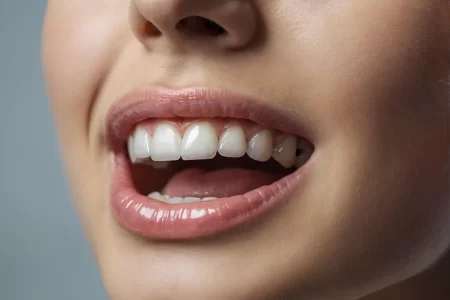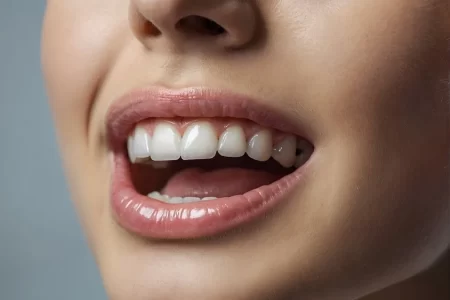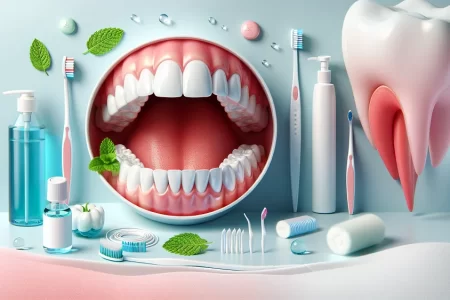Common Dental Issues and How to Prevent Them
- Updated on: Feb 7, 2025
- 4 min Read
- Published on Feb 7, 2025

Oral health plays a big role in overall well-being. Healthy teeth and gums help with eating, speaking, and confidence. When dental problems arise, they can lead to discomfort, difficulty chewing, and even more serious health concerns.

In Garner, NC, many people experience common dental issues such as cavities, gum disease, and tooth sensitivity. These problems can develop due to poor hygiene, diet choices, or lack of professional care. While some issues may seem minor at first, ignoring them can lead to costly and painful treatments later.
Good oral care habits and regular dental visits help maintain strong teeth. Preventing dental problems before they start reduces the risk of pain and expensive procedures. This article covers common dental problems and ways to avoid them.
The Most Common Dental Issues
Several dental issues affect people of all ages. Some problems, like cavities and gum disease, develop gradually. Others, like misaligned teeth, may require professional treatment. Understanding these conditions makes it easier to take preventive steps.
- Cavities: Tooth decay happens when plaque buildup leads to enamel damage. Sugary and acidic foods contribute to cavities by eroding protective layers on teeth.
- Gum Disease: Poor oral hygiene can cause gums to become inflamed, leading to bleeding, bad breath, and eventually, tooth loss.
- Tooth Sensitivity: Discomfort from hot, cold, or sweet foods often results from worn enamel or exposed tooth roots.
- Misaligned Teeth: Crooked or crowded teeth make cleaning harder, increasing the risk of cavities and gum disease.
For those in Garner dealing with misalignment, orthodontic solutions such as Invisalign provide a way to improve both function and appearance. If you’re looking for dental services offering Invisalign Garner NC has options for those who want to straighten their teeth without traditional braces. Clear aligners help adjust teeth with a less noticeable approach, making them a popular choice for adults and teens.
Preventing Cavities and Tooth Decay
Cavities are one of the most common dental problems. They occur when plaque, a sticky layer of bacteria, builds up on teeth. When combined with sugar and starch from food, plaque produces acid that weakens tooth enamel.
To reduce the risk of cavities:
- Brush twice a day with fluoride toothpaste to remove plaque and strengthen enamel.
- Floss daily to clean areas where a toothbrush cannot reach.
- Limit sugary foods and drinks, such as soda and juices, which feed bacteria in the mouth.
- Visit the dentist regularly for professional cleanings and early detection of decay.
Fluoride treatments and dental sealants add extra protection, especially for those prone to cavities. Catching decay early prevents more serious damage that could require fillings, crowns, or root canals.
Avoiding Gum Disease
Gum disease, also called periodontal disease, starts with minor symptoms like bleeding gums and bad breath. If left untreated, it can progress to more severe infections that affect bone and lead to tooth loss.
The main cause of gum disease is plaque buildup along the gumline. To maintain healthy gums:
- Brush and floss regularly to remove bacteria before it hardens into tartar.
- Use an antibacterial mouthwash to reduce germs in hard-to-reach areas.
- Quit smoking since tobacco use weakens the immune system and slows gum healing.
- Schedule dental cleanings to remove tartar buildup and check for early signs of disease.
Gum health is just as important as tooth health. Keeping gums free from infection helps protect overall oral health and lowers the risk of tooth loss.
Managing Tooth Sensitivity
Tooth sensitivity affects many people, causing discomfort when eating hot, cold, or sweet foods. This condition often develops due to worn enamel, gum recession, or tooth decay. In some cases, aggressive brushing or acidic foods can weaken the protective layer of the teeth, exposing the nerves underneath.
To reduce sensitivity and prevent further damage:
- Use toothpaste made for sensitive teeth. These formulas contain ingredients that help block pain signals from reaching the nerves.
- Brush gently with a soft-bristled toothbrush. Scrubbing too hard can wear down enamel and expose sensitive areas.
- Limit acidic foods and drinks. Citrus fruits, soda, and vinegar-based dressings can contribute to enamel erosion.
- Drink water throughout the day. Staying hydrated promotes saliva production, which helps protect and strengthen teeth.
For ongoing or severe sensitivity, visiting a dentist is important. Treatments such as fluoride applications or dental bonding can help protect exposed areas and reduce discomfort. If sensitivity worsens, it could indicate an underlying issue like a cracked tooth or deep cavity that needs immediate attention.
The Importance of Regular Dental Checkups
Even with great daily care, visiting the dentist regularly is necessary to prevent and treat dental issues early. Professional cleanings remove plaque and tartar buildup that brushing alone cannot eliminate. Dentists also check for early signs of decay, gum disease, or other oral health concerns.
Routine checkups help with:
- Detecting cavities before they worsen. Small cavities can be treated with simple fillings, but untreated decay can lead to more serious procedures like root canals.
- Checking for gum disease. Dentists examine the gums for inflammation, recession, and other warning signs of infection.
- Monitoring tooth alignment and jaw health. Bite issues and shifting teeth can be identified before they cause discomfort or long-term damage.
- Getting professional fluoride treatments or sealants. These can add an extra layer of protection against cavities, especially for those prone to decay.
Skipping dental visits may allow minor problems to develop into painful and expensive conditions. Making routine care a priority leads to better oral health and fewer complications down the road.
Taking care of teeth requires daily maintenance and professional care. Brushing, flossing, and making healthy choices help prevent common dental problems like cavities, gum disease, and sensitivity. Regular checkups provide early detection and treatment, reducing the risk of serious dental issues. By prioritizing oral health now, long-term problems can be avoided, leading to a healthier smile for years to come.












